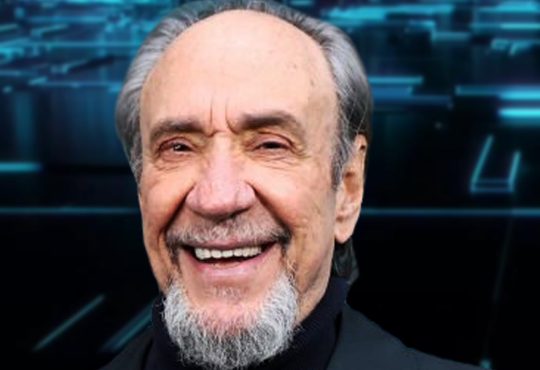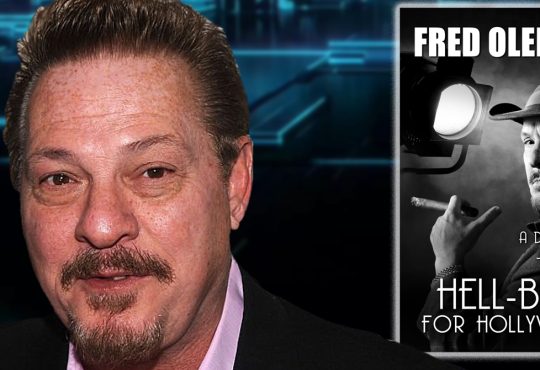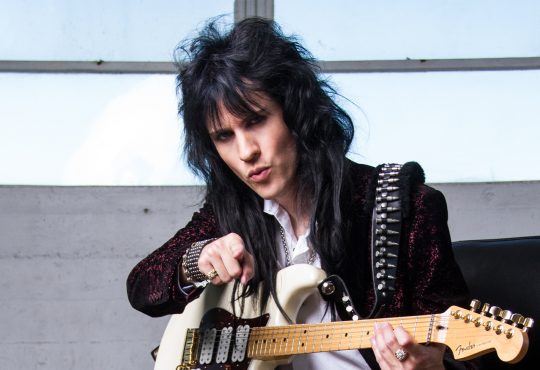‘Mythic Quest’ Season Two: Let the New Games Begin
In the new season of the Apple TV+ comedy Mythic Quest, creative directors Ian (Rob McElhenney) and Poppy (Charlotte Nicdao) struggle to design an expansion for the wildly popular online video game they run together. The deeper their struggles get, the easier it is to wonder if the two of them have taken Mythic Quest the game as far as it can go.
That story arc provides an effective counterpoint to what’s happening with Mythic Quest the show, which McElhenney created with fellow It’s Always Sunny in Philadelphia writers Charlie Day and Megan Ganz. Where Mythic Quest Season One displayed potential, it felt — like most comedies do at that early stage — like a work-in-progress whose creators were still figuring out the strengths and weaknesses. Those early episodes were surprisingly strong on the kinds of sincere interpersonal dynamics that Always Sunny has no room for, but the humor was hit-or-miss.
McElhenney and company came back together last spring for easily the best Zoom-based episode anyone made in the early months of the pandemic. The tech-world setting fit easily into a format where the characters could — with one notable, poignant exception — only interact virtually, while the tension we were all feeling at that precarious moment wound up enhancing the jokes rather than undercutting them.
That quarantine story was a tremendous achievement, and Mythic Quest continues to level up in Season Two, even with the characters all back in the office together. (Well, mostly: The first half of the season has an inspired running gag in which the game’s technologically inept head writer C.W. Longbottom, played by F. Murray Abraham, has to keep FaceTiming into meetings because it’s less safe for him to go out than it is for his younger colleagues.) It’s now a consistently funny show, on top of an emotionally effective one.
The first season leaned on the tension between narcissistic Ian, who founded the game on his own, and neurotic Poppy, who felt long disrespected for her work until Ian finally promoted her to his level. And it kept the supporting characters mostly siloed into smaller groups so that, for instance, flirtatious game testers Rachel (Ashley Burch) and Dana (Imani Hakim) mostly just worked with each other, while David Hornsby’s meek producer David was primarily a foil for Danny Pudi’s ruthless money man Brad. All of these dynamics continue this season, often in fun new ways — as Rachel and Dana consider becoming a couple, they prove an endless headache for HR boss Carol (Naomi Ekperigin), who just wants everyone to shut up and behave like adults — but the new episodes smartly mix and match the characters into unexpected and effective new combinations.
Ian and Poppy split up to work on different halves of the new expansion(*), and enlist the testers as their new assistants, and Ian’s exasperation with Rachel — and the ways that Rachel keeps unwittingly re-enforcing his patronizing attitude — is an ongoing delight. (Ian, simultaneously trying to be better while also being his usual smug self: “Helping women is exhausting!”) David and Brad’s rivalry also continues, but now with the complication that David’s sociopathic former assistant Jo (Jessie Ennis) has adopted Brad as her new boss and mentor. These episodes achieve the goal to which any ensemble sitcom should aspire: recognizing not only what’s inherently funny about each character, but what’s funny when they cross the path of every other character.
(*) In Season One, the show was actually titled Mythic Quest: Raven’s Banquet, the latter half referring to the previous expansion to the game. The shorter name works better.
Season One’s highlight was an off-format episode called “A Dark Quiet Death,” a doomed love story about a pair of video game designers (played by Cristin Milioti and Jake Johnson) from a previous generation. This was Mythic Quest leaning entirely into its dramatic side, and it was so strong it left me wishing that the series as a whole was just about those two characters. Season Two has its own flashback episode, this time a C.W. Longbottom origin story from the Seventies (where he’s played by Josh Brenner from Silicon Valley), which is followed by a present-day sequel where C.W. catches up with one of his old friends, now played by William Hurt(*). Both are lovely, sad little vignettes that fit seamlessly into the show’s larger, broad comic world. But because the office material is so much better now, the C.W. episodes feel like a delicious side dish, rather than something that should have been served instead of the main course.
(*) Between them, Abraham and Hurt have nearly 250 credits over a combined 95 years of screen acting, and their careers peaked at roughly the same time, with Abraham winning his Amadeus Oscar a year before Hurt won his for Kiss of the Spider Woman. Yet somehow, this is the first time they’ve acted together in a movie or TV show.
Drama first seasons are often like a musician’s first album: packed with all the ideas they’ve been saving up for a long time, which can result in creative shortages later. Sitcoms, though, have more of a learning curve, which is why the second seasons of shows like Always Sunny or The Office are so much better than their first. Mythic Quest fits neatly into that tradition, having translated a lot of its potential energy into real, kinetic laughter.
Season Two of Mythic Quest premieres with two episodes on May 7th, with additional episodes releasing weekly. I’ve watched all nine episodes.







